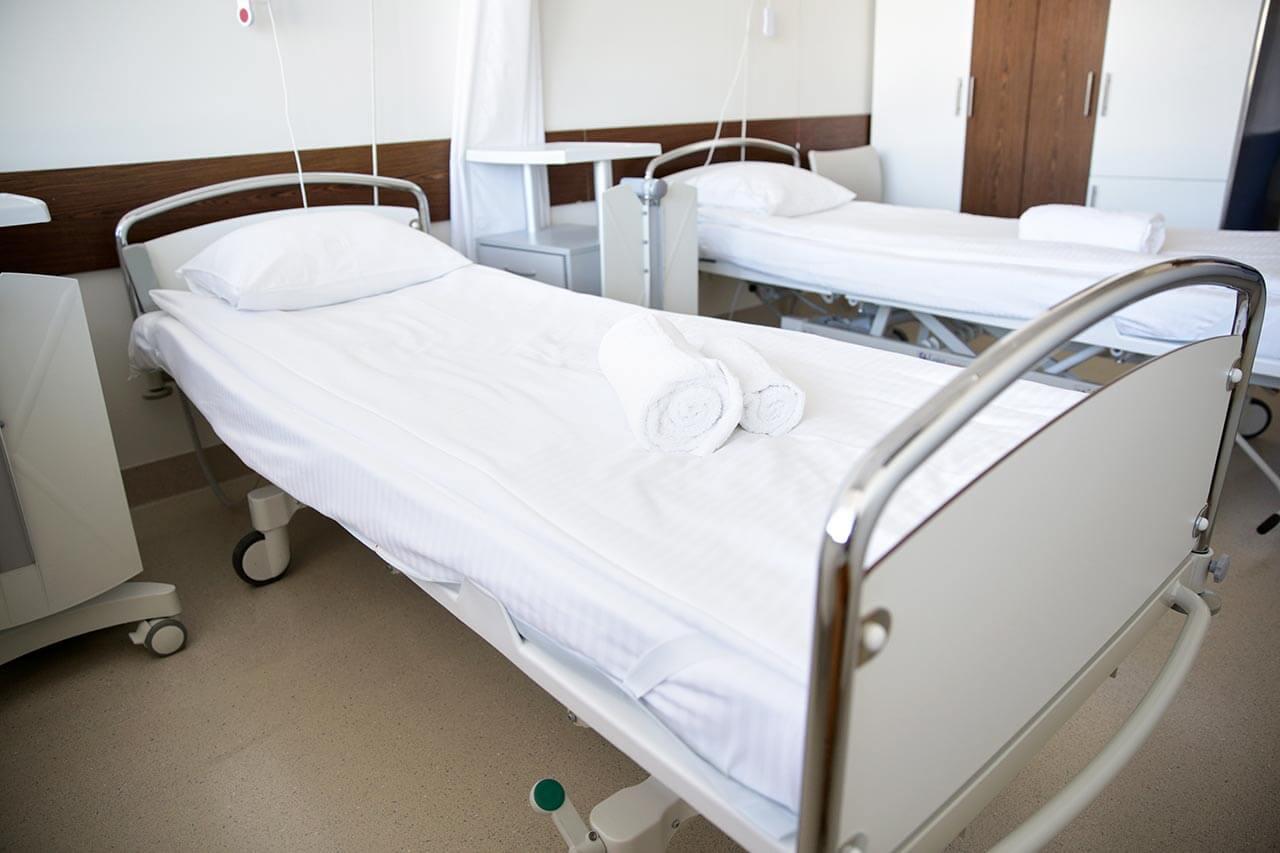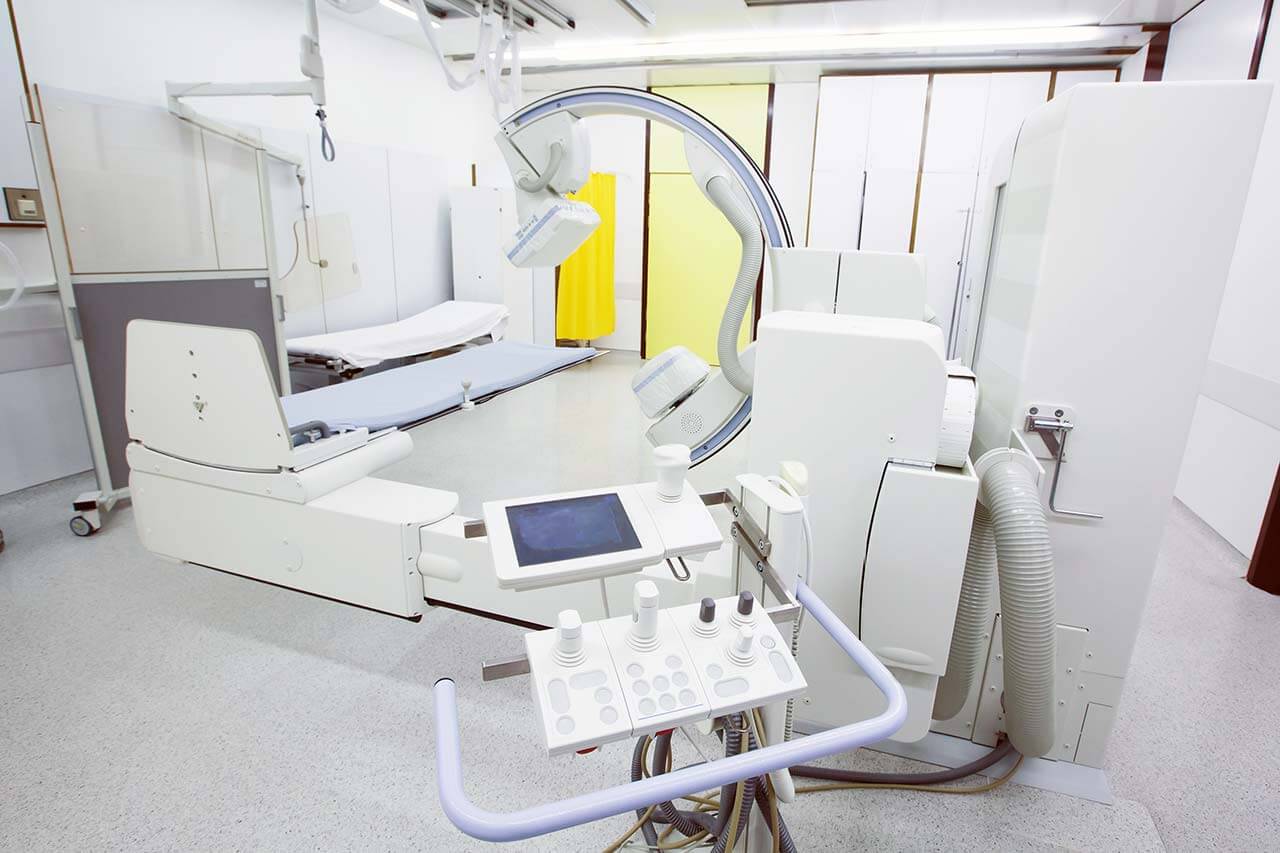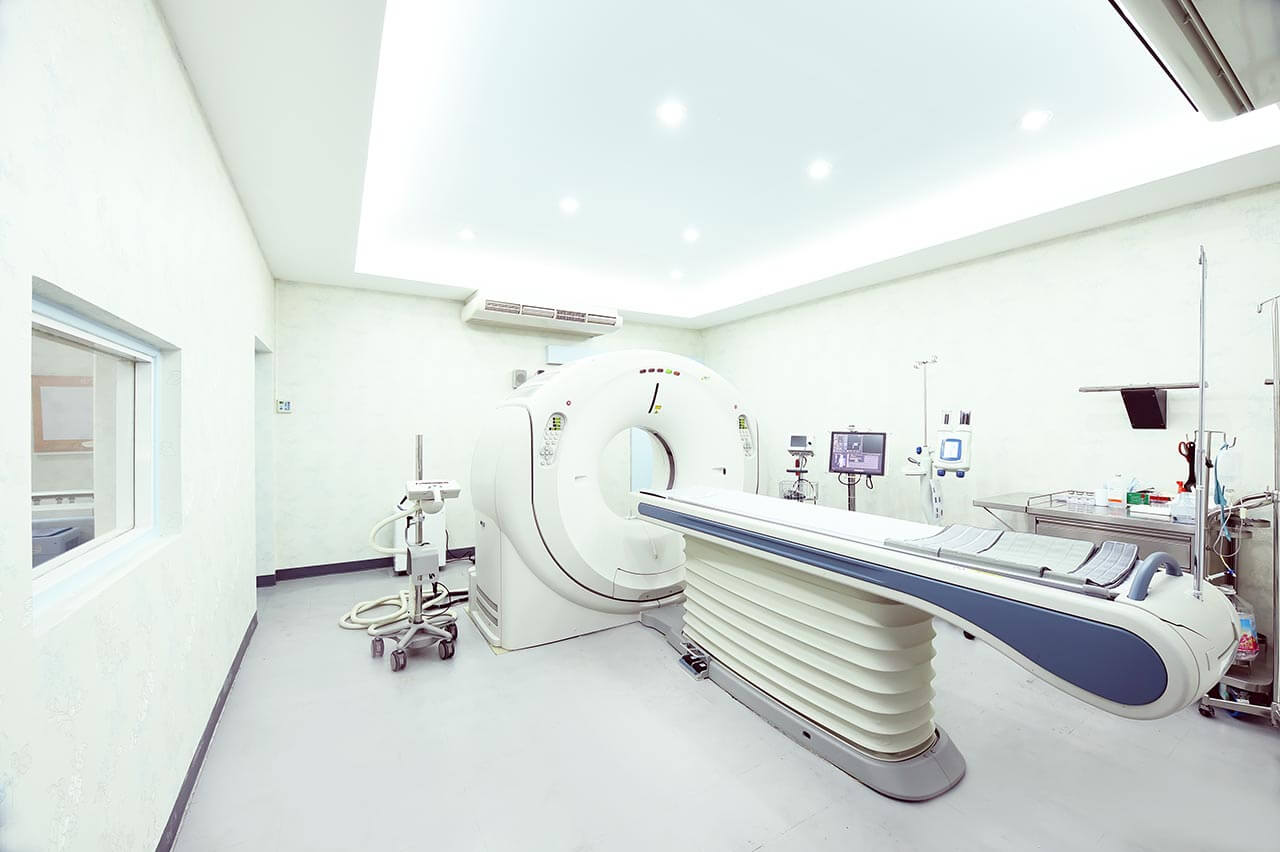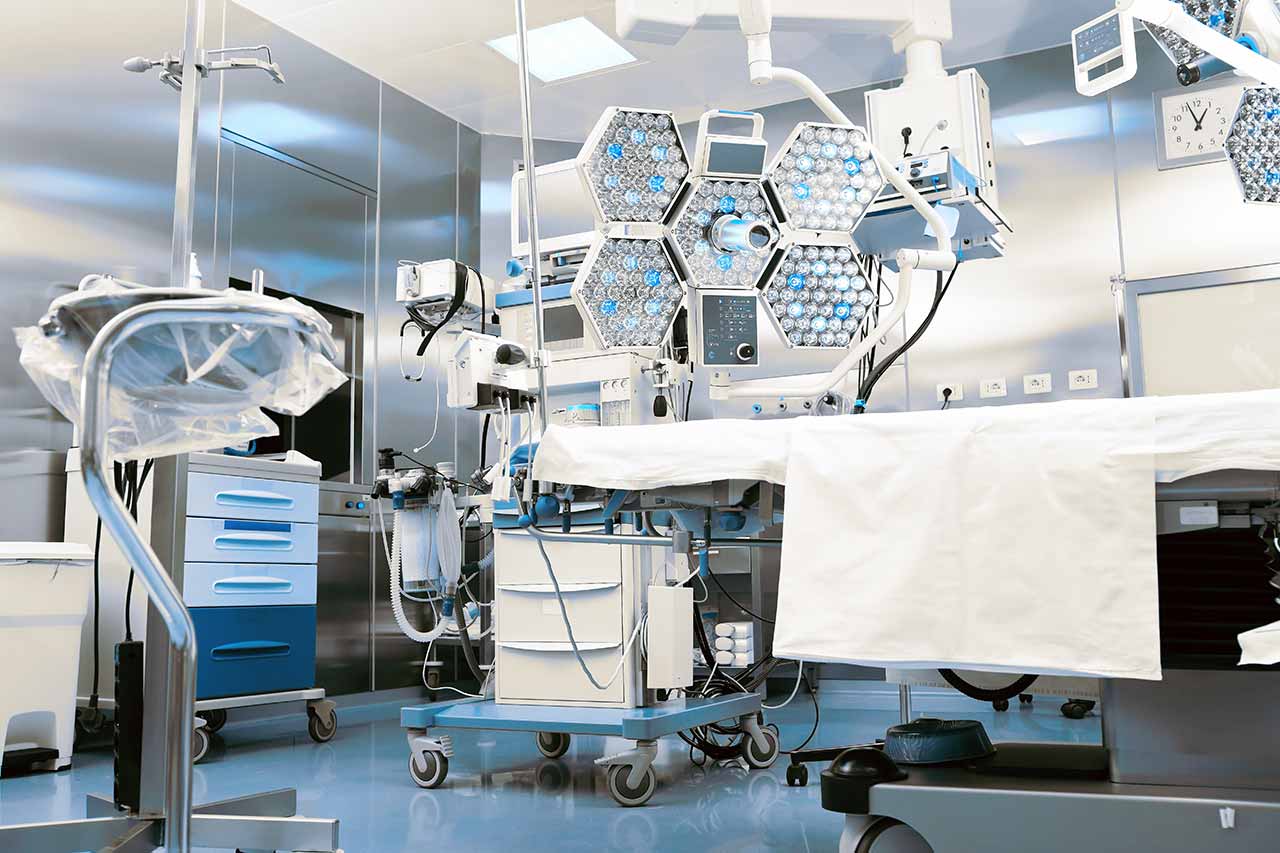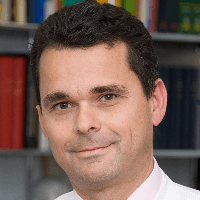
The program includes:
- Initial presentation in the clinic
- clinical history taking
- review of medical records
- physical examination
- laboratory tests:
- complete blood count
- general urine analysis
- biochemical analysis of blood
- inflammation indicators (CRP, ESR)
- TSH, fT3, fT4
- L-Dopa-Test
- indicators of blood coagulation
- neurological examination
- CT/MRI scan
- neuropsychological tests (if indicated):
- ENMG (electroneuromyography)
- EEG (electroencephalography)
- SEPs (somatosensory evoked potentials)
- VEPs (visually evoked potentials)
- BAEP tests (brainstem auditory evoked potentials)
- stationary EEG monitoring
- preoperative care
- surgical treatment of Parkinson's disease with deep brain stimulation and implantation of
neurostimulator (including the cost of neurostimulator) - 1-day intensive care unit stay
- postoperative MRI control
- symptomatic treatment
- control examinations
- the cost of essential medicines and materials
- nursing services
- full hospital accommodation
- developing of further guidance
How program is carried out
During the first visit, the physician will conduct a clinical examination and neurological examination, and go through the results of the available diagnostic tests. After that, you will undergo the necessary additional examination, such as the laboratory blood and urine tests, MRI or CT scan. Based on the results of an additional examination, the physician will clarify the localization of foci of pathological electrical activity in the brain. After that, the preparation according to the preoperative standard will begin.
The first stage of treatment is the implantation of stimulating electrodes into the brain. The operation is performed under local anesthesia, through a small opening in the skull. You will be awake and communicating with your surgeon, so that he will be able to assess the correctness of the brain electrodes placement.
The second stage of treatment is the implantation of a neurostimulator, which will generate electrical impulses that regulate the work of the brain. Depending on the anatomical peculiarities, the surgeon will place the neurostimulator under the collarbone or in the abdomen and attach the brain electrodes to it. Typically, this operation is performed under general anesthesia.
After the completion of the operation, you will stay in the intensive care unit, under the round-the-clock supervision of physicians and nurses. When the condition becomes stable, you will be transferred to a regular ward.
Your physician will evaluate the results of the postoperative MRI and program the neurostimulator according to your individual needs. You will be able to turn the device on and off yourself. After setting up the neurostimulator, the attending physician will schedule the date of discharge from the hospital and give you detailed recommendations for further follow-up and treatment.
Required documents
- Medical records
- MRI/CT scan (if available)
Service
You may also book:
 BookingHealth Price from:
BookingHealth Price from:
About the department
The Department of Adult and Pediatric Neurosurgery at the University Hospital Essen offers the widest range of surgical interventions for the treatment of diseases of the central and peripheral nervous system, including stereotactic surgery and endoscopy. With more than 2,400 operations every year, the department has a unique experience, which allows it to provide the high-quality medical care even in extremely complex clinical cases. The key focus of the department is pediatric neurosurgery. In addition to the high professionalism of doctors, the treatment success is facilitated by exclusively advanced medical equipment, for example, neuronavigation systems and intraoperative fluorescence navigation. The Chief Physician of the department is Prof. Dr. med. Ulrich Sure.
The department provides all options for the treatment of neurosurgical diseases. These include brain surgery for the treatment of cancer and vascular diseases. The priority focus is the comprehensive treatment of vascular anomalies (aneurysms, cavernomas, angiomas). In the field of neuro-oncology (the treatment of cancer of the nervous system), the department provides medical services in close cooperation with the West German Cancer Centre, which has an excellent reputation in Germany and is one of the largest and most progressive medical facilities of the international level. Also, key attention is paid to the treatment of spinal and spinal cord diseases.
The operations are performed in three operating rooms equipped with state-of-the-art technology. The department widely uses neuronavigation surgery, which allows to ensure the highest accuracy and safety during the operations on the brain and spinal cord, spine. The specialists from the departments of neuroradiology, pediatrics, neuropediatrics are often involved in performing operations in children, which contributes to the achievement of an optimal treatment outcome. Before determining the type of required intervention, there is conducted the comprehensive diagnostics, and after the selection of the best treatment option, the doctors carefully plan the surgical procedure.
The department’s clinical focuses include:
- Surgical treatment of arteriovenous malformations
- Surgical treatment of cerebral aneurysms
- Surgical treatment of acoustic neuroma
- Surgical treatment of cavernomas
- Functional neurosurgery
- Deep brain stimulation
- Surgical treatment of diseases of the peripheral nervous system
- Pediatric neurosurgery
- Surgical treatment of spina bifida
- Skull base surgery (pituitary tumors, meningiomas)
- Surgical treatment of complex spinal diseases
- Other diagnostic and therapeutic services
Curriculum vitae
Education
- 1986 - 1993 Study of Human Medicine, Free University of Berlin and University of Freiburg.
Internships Abroad
- 1990 Department of Neurosurgery, University Hospital, Sao Paulo, Brazil, 4 months.
- 1990 Department of Pediatric Neurosurgery, New York University, New York, USA, 2 months.
- 1992 Department of Neurosurgery, University Hospital, Nagoya, Japan, 4 months.
- 1993 Institute of Neurology, London, UK, 4 months.
- 2006 Carolina Neurological Institute, Raleigh, USA.
Thesis
- 1993 Medulloblastoma Researches (Supervisor: Prof. Wolfgang Seeger, Freiburg), defense with honors.
Habilitation
- 2002 Endothelial cell proliferation and neoangiogenesis of cerebral vascular malformations and their clinical significance, Philipps University of Marburg.
Additional Qualifications
- Certification in Vascular Neurosurgery (DGNC).
- Certification in Neuro-Oncology (DGNC).
- Certification in Surgical Treatment of Epilepsy, Working Group on Non-Invasive Diagnostics of Epilepsy.
Further Training and Professional Activities
- 1993 Postdoctoral Fellow, Institute of Neuropathology, University of Zurich.
- 1994 Assistant Physician, Department of Neurosurgery, University Hospital Aachen.
- 1997 Assistant Physician, Department of Neurosurgery, University Hospital at the Philipps University of Marburg.
- 1999 Professional certification in Neurosurgery.
- 1999 Senior Physician, Department of Neurosurgery, University Hospital, Philipps University of Marburg.
- 2002 Leading Senior Physician and Deputy Head of the Department.
- 2006 Extraordinary Professor, Department of Neurosurgery, Philipps University of Marburg.
- 2007 Acting Head in the Department of Neurosurgery, University Hospital at the Philipps University of Marburg.
- 2008 Refusal of a position at the University Hospital Mannheim.
- 2008 Acceptance of an invitation to work at the University Hospital Essen.
- 2008 Head of the Department of Adult and Pediatric Neurosurgery at the University Hospital Essen.
- 2011 Refusal of a position at the University Hospital Bonn.
Clinical Focuses
- Neurovascular surgery.
- Surgery to treat brain tumors (including skull base).
- Surgical treatment of epilepsy.
- Spinal and spinal cord surgery.
- Minimally invasive surgical techniques.
Research Focuses
- Intraoperative imaging.
- Molecular basis of neurovascular diseases.
- Molecular basis of neuro-oncological diseases.
- Neurosurgical significance of high-field magnetic resonance imaging.
- Neuropsychology in neurosurgery.
Membership in Professional Societies
- German Society of Neurosurgery (DGNC).
- Professional Association of German Neurosurgeons (BDNC).
- German Academy of Neurosurgery (GANS).
- German Cancer Society (DKG).
- European Association of Neurosurgical Societies (EANS).
- American Association of Neurological Surgeons (AANS).
- Congress of Neurological Surgeons (CNS).
- World Academy of Neurological Surgery (WANS).
- Academia Eurasiana Neurochirurgica.
- German Spine Society (DWG).
Photo of the doctor: (c) Universitätsklinikum Essen
About hospital
According to the authoritative Focus magazine the University Hospital Essen ranks among the top German hospitals!
With 27 specialized departments and 24 institutes, the hospital in Germany is a maximum care medical facility. The hospital has 1,300 beds for inpatient treatment. A highly qualified medical team of more than 6,000 employees takes care of the health of patients. All the specialists give preference to an interdisciplinary medical care, which guarantees a comprehensive treatment taking into account the smallest aspects of a particular pathology. The hospital annually diagnoses and treats more than 50,000 inpatients and about 195,000 outpatients, which testifies to the prestige of the medical institution and the highest quality of treatment in Germany.
The hospital presents all the modern medical fields. Nevertheless, special attention should be given to the following major fields of specialization as oncology, transplantology and cardiology, as well as research activities in the field of immunology, infectology and translational examinations of pathologies of the nervous system and behavioral disorders.
Established on the basis of the standard American model of Comprehensive Cancer Centers, the West German Cancer Center (WTZ) in Essen was recognized as the best medical facility of this kind in Germany in 2009. Nowadays, the center holds leading positions both on the national and international medical markets. The basis of its successful clinical practice is the use of very latest treatment methods and an interdisciplinary approach to each clinical case. The West German Organ Transplant Centre (WZO) is also recognized as one of the best in the country and one of the few in Germany, which specializes in the transplantation of all vital organs, such as kidney, liver, pancreas, heart and lungs. Special attention is paid to kidney and liver transplantation.
The hospital in Germany is proud of its high-tech medical equipment, experienced and competent staff, productive research activities, which allow to guarantee the accurate diagnostics and effective treatment, including rare and very complex clinical cases for every patient. Consequently, the hospital is considered a perfect embodiment of high-quality treatment in Germany.
Photo: (c) depositphotos
Accommodation in hospital
Patients rooms
The patients of the University Hospital Essen live in comfortable rooms designed in bright colors. The standard room furnishing includes an automatically adjustable bed, a bedside table, a personal wardrobe, a personal call button with a built-in light panel, a telephone, a TV and a radio. The Internet access is available at an additional cost.
Meals and Menus
The patients of the hospital are offered a daily choice of three menus. The patients are also offered alternative types of menus, if their religion requires the exclusion of certain foods. If you follow a certain diet or suffer from food intolerance, you will be provided with a menu of your choice by discussing it with your attending physician in advance. The hospital also houses a bistro and a cafe, where one can have a tasty snack, enjoy hot and cold drinks.
Further details
Standard rooms include:
Accompanying person
There are a few types of hotels for the accompanying persons, who want to stay near the hospital. The hotel of the Essen University Hospital offers apartments on the first floor of the nursing high-rise building. The DRK nursing also offers single and double rooms.
The hotel in Grugapark is available for the parents, whose children stay in the hospital. The parents of children with cancer can also stay here. Moreover, The Department of Pediatrics offers its rooms for parents.
